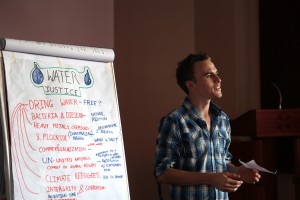
Sean Darryn, 23 from Evangelical Lutheran Church in Southern Africa presents group discussion on water Justice

Sean Darryn, 23 from Evangelical Lutheran Church in Southern Africa presents group discussion on water Justice
Posted in Ecological Justice
Human creation calls for human solution
By Maggie Mwape
The demographic pressure and poverty are said to influence Africa poor to clear the reduction of forest areas. Many lack sufficient resources to even manage the urbanization and industrialisation challenges as compared to those in the rich nations. Although poor nations are gaining quicker social and economic development the level of rich nations per capital CO2 emissions is several times higher among the rich nations than it is for developing countries. It is however sad that the efficiency of energy use is improving even in the poor countries.
Sewage, solid waste and mining pollution are major problem in urban setting as opposed to industrial pollution. Majority of people are dependent on natural resources for livelihood. Reverse in land degradation and soil erosion improves moisture conservation which also leads to sustainable development of agriculture and low poverty levels. It is emphasised that care has to be taken to particularly avoid destructive development which aggravates poverty and degrades environment. It is clear that environment cannot be sustained and protected if poverty continues by continuation of poverty and at the cost of human dignity.
A Zambian court recently fined a mining company for pollution of Kafue-Mushishima River. The court awarded the residents for safeguarding the environment. Though many believe the judgement did not factor in cost compensation for reduced human lifespan it is a great step in punishing industries that pollute environment.
It is worth to note, the poor are to a larger extent dependent on nature for survival but human activities lead to calamities, environment degradation. Deforestation on slopes of mountains increases floods and landslides. Similarly, neglect of water and soil management leads into soil erosion which threatens food security.
The poor often suffer in the midst of all disasters such as floods and drought. Lose of such productive assets affects speed-up economies. Indeed the environment has huge bearing and impact on the economy of the poor and it is for that reason that we collectively responsibility to re-create systems that we created for a Just economy.
By Maggie Mwape- Zambia
The concept of the green economy has gained momentum in large extent since it provides response to multiple crises facing the world in recent years such as – climate issues, food and economic crisis. Green economy promises an alternative growth paradigm to protect earth ecosystem and alleviate poverty. Transition to a green economy means moving away from the system that encourages such crisis to one that proactively addresses and prevents them.
Failure to tackle poverty leads to increased social tensions, ecological
pressures, economic crisis which emphasize on the urgency to transit to a “green economy”. Such economy fosters sustainable development and poverty eradication. The sad truth is, Zambia for instance has failed to eradicate poverty in the 21st century which has seen development growth.
For the world or Africa and in my case Zambia to realize economic growth protection of environment is a must as priority is given to the youth. It is equally important to highlight the social dimension to pursue a green economy. No doubt the poor are most vulnerable to environmental degradation. In order to raise living standards in a manner that improves health and general well-being of the society, the green economy should be a consideration. That should also emphasize usage of our resources in a more sustainable manner.
In my opinion, i view the green economy to even cover broader sets of issues such as improved resource efficiency and production practice in the use of energy, water management, materials, and natural resources. To maintain an ecosystem service that forms foundation for green growth we must develop and deploy clean energy technologies, improve consumer outreach efforts that promote green purchase. In addition to develop human capacity for the green economy that supports efforts to eliminate fossil fuel subsidies and trade barriers on environmentally friendly goods and services.
Green growth is often hampered by market failures and it is facilitated by three key policies that aim to get the prices and quantities right, investment in innovative technology to research and development as well as responsibly manage public shared resources. If implemented appropriately, these policies promises strong economic growth and improve environmental quality, health and well-being.
It is a fact that no government can independently lead the transition to a green economy in isolation. This calls upon climate change players to engage the youth and private sector to leverage investments to promote green business practices. Inclusion of all stakeholders in the process of transition will fast track the realization of a green economy.
Credit ought to be given to largest companies driving global change in green practices in their supply and production chains. In same light, areas where market signals are not effective, governments should look for ways to collectively engage with private sector to encourage involvement.
Any success in green economy should not ignore the role played by youths and women in activating society change. Opportunity waits in this group on education, technical training, and access to finance land and resource rights which can propel quick realization of green economy.
Investment in human capital is essential for a green economy. For Zambia focus should be directed on improved science education, technology, engineering and mathematics skills that support green economic growth. Shift in labour is a feature for any economy to transit into a green economy. Nevertheless such transition should promote job creation and train workforce in skills required to succeed in achieving a green economy.
As a young person, i urge the Zambia government, United Nations, International Donors and Private sectors to announce an innovative policy that aims to promote research and development. Such efforts improve access to finance youth entrepreneurs and reduce barriers to new businesses and backlogs patents. International cooperation has a role to play leverage complementary strengths and share the cost of public investment in innovation. All countries have a shared responsibility to create clean energy technology markets by providing enabling policy environments.
The green economy is not a one-size-fits-all proposition. Each nation need to define own priorities and processes that suit and meet own interest(s). Presentation of a toolkit, range policy options collectively recognized and accepted may be the path to a green economy.
Posted in Ecological Justice
Tagged advocacy, Africa, Climate Change, COP17, green economy, zambia
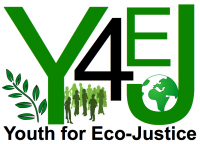 How can we get closer to ecological justice? Just asking this questions is not enough for 32 young Christians gathering in Durban, South Africa, since Sunday. They are part of Youth for Eco-Justice (or Y4EJ), a program jointly organized by the World Council of Churches and the Lutheran World Federation.
How can we get closer to ecological justice? Just asking this questions is not enough for 32 young Christians gathering in Durban, South Africa, since Sunday. They are part of Youth for Eco-Justice (or Y4EJ), a program jointly organized by the World Council of Churches and the Lutheran World Federation.
The training aims at empowering the young participants and their communities to get even stronger in their efforts to achieve more justice among human beings and between humanity and nature. The participants use events around the Durban Climate Change Summit (COP 17 of UNFCC) to learn more and then to plan concrete actions for their home contexts.
For the 8 Lutheran participants it is at the same time the conclusion of the 2011 LWF together - the earth needs you.
BY: Langa Lulanga
Arch Bishop Emeritus Desmond Tutu today urged western countries to join in the fight for a legal binding deal on climate change at COP 17 saying both the rich and the poor are prone to its effects.
He said climate change is a big enemy that no country can fight alone, hence the need for all nations to stand together and speak with one voice.
“I want to tell you that this [earth]is our home, whether rich or poor we both belong to this home, if you destroy it is not only Africa that will suffer, don’t be cheated you will also be affected,” said Tutu.
He welcomed other like-minded leaders- “For your own sake, we are inviting you who are rich to come to our side and fight climate change. God created us to be a family, we are all members of the human family lets care for one another as members of the same family,”.
Retired Arch Bishop Tutu spoke at the ecumenical interfaith rally held at Durban Kings Parks stadium where he handed over 200,000 petitions to Ms. Edna Molewa the South Africa Minister of Water and Environmental Affairs
While receiving the signed petitions, Molewa thanked the Faith leaders for organizing the Inter-faith rally and more so for taking the leadership role in addressing the climate change concerns. “Faith leaders are indispensable in the fight for climate change” she added.
As the incoming COP president, Molewa promised serious action on the petition and lamented the difficult times and called on faith leaders to “invite divine intervention”.
Youths who include school children, flocked the stadium in their large numbers to have their voice heard. A convey of cyclists and youth from “we have faith” caravan escorted the dummy petition in a wooden ark. The cyclists rode for seventeen days covering 1078 kilometers from Mesina on the South African boarder to Durban.
Athletes Lewis Pugh and Braam Malherbe shared challenges they faced in their climate change advocacy. Yvonne Chaka Chaka band Black Mambazo, Arno Carstens and HHP where other entertainers who kept the crowd dancing in pouring rain.
Even rains could not prevent the youths from enjoy and dance to the tunes of Chaka Chaka whose performance took the audience by storm with her old renditions like Winkomboti and other reggae tunes originally performed by Bob Marley and Lucky Dube.
Nigerian poet Nnimmo Bassey present at the Kings park stadium emphasized on the need for the parties to make a lasting deal to address and reverse present climate situation. “We want something tangible to come out of the COP 17 or else Africa will be cooked and fried. We will not stop until something is achieved” said Bassey.
Bassey who works at the Environmental Rights Action (friends of the earth) encouraged continued engagement on climate change and likened it to the apartheid struggle which was won despite several opposition.
Posted in Ecological Justice
Tagged climate change petition, COP17, Desmond Tutu, Yvonne Chaka Chaka
By: Langa Lulanga
South African Security officials have handed over all security operations at The 17th Conference of Parties (COP17) to the United Nations. This is to ensure maximum security at the conference that will draw world leaders, Africa faith leaders,civil societies and youth representatives from around the world.
The United Nations are now in full control of the security at the International Conference Centre (ICC) that has been duped a ‘Blue zone’ until December 9, 2011. “During this period when the world is watching, there are a lot of expectations. The South African police are expected to make sure that they maintain the safety and security of all visitors in our country as well as ensuring that the security of the country at large is not compromised,” says Lieutenant General Nhlanhla Mkhwanazi, Acting National Commissioner of Police.
The conference schedule to start on November 28, 2011 at the ICC in Durban will close on December 9, 2011. 20 000 delegates are expected to fly into Durban for the UN climate change conference. Airports Company South Africa (Acsa) says some sections of the airport’s terminal will be limited only to COP 17 visitors, to minimize overcrowding and delays. The United Nation and South Africa security officials indicated their readiness to handle any security eventualities at the conference.
“The South African Police and its security forces have a proven track record in hosting events. I am confident that your reputation will be further enhanced by the time this premise is handed back from the UN to your proud democracy,” highlighted UN Security Chief Kevin O’Hanlon. The COP17 entered into force in 1995, the Conference of the Parties (COP) to the UNFCCC have been meeting annually to assess progress in dealing with climate change. The COP adopts decisions and resolutions, published in reports of the COP. Successive decisions taken by the COP make up a detailed set of rules for practical and effective implementation of the Convention.
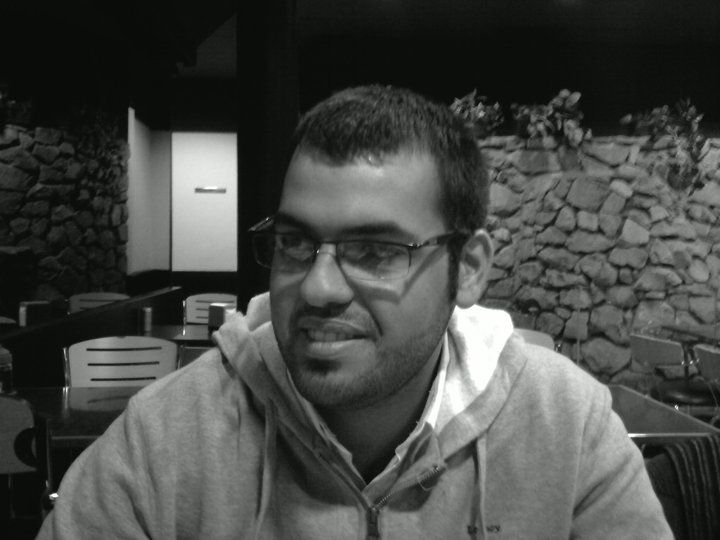 The World Council of Churches and the Lutheran World Federation co-organize Youth for Eco-Justice, starting parallel to the UN Climate Change Summit in Durban, South Africa, at the end of November. In a series of blog posts, the participants are introducing themselves
The World Council of Churches and the Lutheran World Federation co-organize Youth for Eco-Justice, starting parallel to the UN Climate Change Summit in Durban, South Africa, at the end of November. In a series of blog posts, the participants are introducing themselves
Name: Marcelo D. Leites
Age: 26 years old
Function: Regional Secretary of the World Student Christian Federation in Latin American and the Caribbean - WSCF Global Water campaign and Eco Justice programme Chair
Church of Origin: Brethern - independent
Country of Origin: Montevideo, Uruguay, living in Buenos Aires, Argentina
What is really important for your life?
There are several important things in my life, sometimes we need to have priorities about what really is important. I think that one of these very important things is the possibility to improve solidarity, approaches to work justice and peace between us and the creation. It is also to improve ourselves in relation with our brothers and sisters - to be new Men and Women each day, analyzing power and struggling against it.
What are your wishes for the negotiations on Climate Change in Durban?
Civil Society Organizations have a lot of expectations around each COP. After several failures, a lot of Civil Society Organizations, even Churches and Ecumenical Organizations are advocating to the leaders of the world to make changes and establish justice and global agreements. The paradigm of justice agreements is not a part of the common sense of the parties. There are several interests around the possible changes and the recognition of inequities between countries: power and economical interests. I hope for the better possible understanding between the parties, and above all the ecumenical and society family an advocacy actor, so that we make a difference there!
What would you like to do so that your church/country becomes more environmentally just?
The World Student Christian Federation in Latin America and the Caribbean is launching a regional project on Eco-Justice and Water. We are working with 11 countries on the region in a mid-term programme that includes youth environment and justice training, advocacy training, advocacy work in communitarian places (national and regional levels) showing how the youth and students from Grassroots Organization, the Student Christian Movement (from WSCF) and the youth from churches can make a difference, work on issues related to Eco-justice around the region, and work on this issue from a popular reading of the Bible.
In our first step we are launching an itinerary photo exhibition about the conflict between communities around water issues. We will show this photo exhibition in at least seven countries of the region and in two important international events: The Conference on Sustainable Development of the UN in Río de Janeiro, Brazil, RIO+20 and in the Latin-American Water Tribunal, in Buenos Aires Argentina.
This training and the participation in the COP meeting is very helpful for our own commitment in Latin America and the Caribbean. We want to engage young people and students on this matter, to get them learn from this global experience around the Student Christian Movement through our WSCF WATER campaign.
Posted in Church, Ecological Justice, Ecumenism, UN, Youth participation
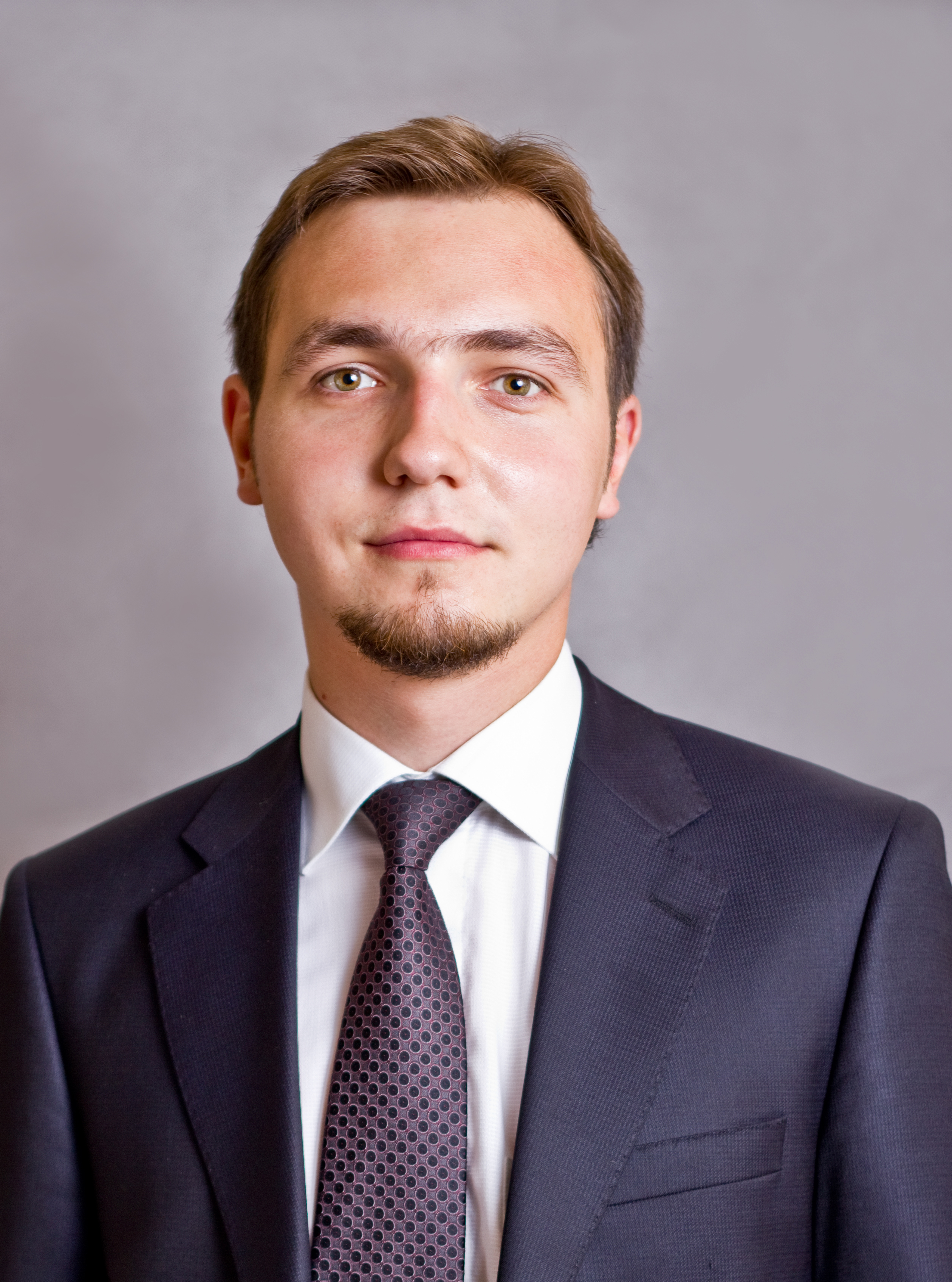 The World Council of Churches and the Lutheran World Federation co-organize Youth for Eco-Justice, starting parallel to the UN Climate Change Summit in Durban, South Africa, at the end of November. In a series of blog posts, the participants are introducing themselves
The World Council of Churches and the Lutheran World Federation co-organize Youth for Eco-Justice, starting parallel to the UN Climate Change Summit in Durban, South Africa, at the end of November. In a series of blog posts, the participants are introducing themselves
Name: Stanislau Paulau
Age: 22
Function: Student of M.A. Programme “Intercultural Theology”
Country of Origin: Belarus
Church of Origin: Belarusian Orthodox Church of the Moscow Patriarchate
What is really important for your life?
For me it is important always to go further in my relationships with
creation, people and God and to discover something new in this ongoing
process. I think that my feeling of life was precisely put into the
words by St. Gregory of Nyssa: “The end of each discovery becomes the
starting point for the discovery of something higher, and the ascent
continues. Thus our ascent is unending. We go from the beginning to
beginning by way of beginnings without end.” So, I appreciate to be a
beginner.
What are your wishes for the negotiations on Climate Change in Durban?
In Durban we will have a unique space for sharing and learning and I
do hope that we will manage to engage into a fruitful dialogue with
each other. In my opinion it is very important to bring our own
perspectives on the issue of Eco-Justice into discussion and enrich
each other by this way. I wish that we as Christian youth from all
over the world will build a common vision for the future of our common
Earth.
What would you like to do so that your church/country becomes more environmentally just?
I think that the Church should more intensively stress that everything
that lives and breathes is sacred and beautiful in the eyes of God and
do everything to protect this beauty. And that should start from the
parish/youth or bible group level. I would be happy to be able to
contribute on the place where I live to this understanding that the
whole world is a sacrament. Such an understanding of the world could
become a source of environmental justice.
Posted in Church, Ecological Justice, Ecumenism, UN, Youth participation
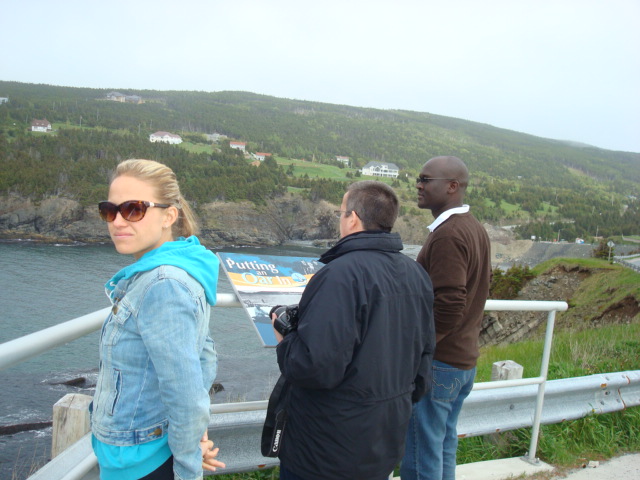 The World Council of Churches and the Lutheran World Federation co-organize Youth for Eco-Justice, starting parallel to the UN Climate Change Summit in Durban, South Africa, at the end of November. In a series of blog posts, the participants are introducing themselves
The World Council of Churches and the Lutheran World Federation co-organize Youth for Eco-Justice, starting parallel to the UN Climate Change Summit in Durban, South Africa, at the end of November. In a series of blog posts, the participants are introducing themselves
Name: Caroline Foster
Age: 28
Country of Origin: Canada
Church of Origin: Works as the network and young adult coordinator for KAIROS: Canadian Ecumenical Justice Initiatives. KAIROS unites 11 churches and faith-based organizations in faithful action for justice and peace. Attends a Presbyterian church in Toronto.
What is really important in my life:
Family, friends, and working for a more just and sustainable community locally and globally. I find that the more I learn about the world, the more work I see that needs to be done to ensure that this planet can sustain future generations. As a person whose daily life is not directly adversely affected by climate change, I feel a deep sense of responsibility for the impact my country has had on marginalized communities at home and abroad.
What my wishes are for the negotiations on Climate Change in Durban: It is my hope that the world leaders will commit to a long-term sustainable plan to reduce global warming. I hope that the leaders from the Global North will commit to dealing with the ecological debt owed to the majority world and that a plan that incorporates the voices and perspectives of the Global South would be put into action.
What would you like to do so that your church/country becomes more environmentally just?
The experience and learning that I hope to gain from the programme will assist me in facilitating workshops and planning events related to eco-justice. KAIROS has two explicit foci; human rights and ecological justice. KAIROS has recently identified working with and engaging youth in those program areas as a priority and a major component of the strategic plan for the coming years. Over the next year, we are looking at hosting youth ecumenical gatherings across Canada. I believe that my experience at Youth for Eco-Justice will be useful in helping to shape these gatherings. I believe that as a young person I have the opportunity and responsibility to work towards a more sustainable and environmentally just future for my children and all of God’s creation.
Posted in Church, Ecological Justice, Ecumenism, UN, Youth participation
 The World Council of Churches and the Lutheran World Federation co-organize Youth for Eco-Justice, starting parallel to the UN Climate Change Summit in Durban, South Africa, at the end of November. In a series of blog posts, the participants are introducing themselves
The World Council of Churches and the Lutheran World Federation co-organize Youth for Eco-Justice, starting parallel to the UN Climate Change Summit in Durban, South Africa, at the end of November. In a series of blog posts, the participants are introducing themselves
Name: Kristi Holmberg
Age: 21
Function: Undergraduate Student at Luther College, Decorah, IA, United States
Country of Origin: United States of America
Church of Origin: Evangelical Covenant Church of America/Associate Member of Evangelical Lutheran Church of America (ELCA)
What is really important for your life?
My longstanding hope is to learn how to love. According to one of my favorite authors, Shane Claiborne, “this love is not sentimental, but heart-wrenching; the most difficult and most beautiful thing in the world.” Cultivating community and forming deep and meaningful relationships is of utmost importance to me. But this love also drives me to care deeply about causes I am passionate about: socio-economic justice and poverty, immigration and refugees, interfaith dialogue and engagement, and now, sustainability and climate change. I follow Jesus’ example for compassionate and redemptive engagement in the world by actively entering into the brokenness and working to redeem it, though often in small ways. Learning is also central to this call as I continue my studies in religion, sociology, and writing and risk failure in growing and life-changing experiences.
What are your wishes for the negotiations on Climate Change in Durban?
I have read articles recently that have been doubtful about the effectiveness of the upcoming negotiations in Durban. Climate change is a heavy, daunting issue. Convention after convention, the issue can feel gridlocked. I am also aware that not everyone in the U.S. knows what the UNFCCC is nor the impact it could and should have. I am easily frustrated by this reality, but I have learned from my own personal path despair is downspiraling and dehabilitating.
If we are to continue to address climate change and collaborate on a global scale, I believe we must choose hope, not despair. I want to see this hope manifested in effective, collaborative international policies at the UN negotiations and in international leaders who take responsibility for their nations’ actions. I hope our nations’ leaders would seek common good and common justice and not be swayed by vested interests or economic gains. I hope to see negotiations that address the disproportionate impact climate change has on the poor. I pray the youthful, passionate, presence of the Church with the Youth for Eco-Justice programme will provide the energy, innovation, and spirit-filled presence for fruitful dialogue among diverse groups of people. While its tempting to be pessimistic and doubtful, I have great expectations for the UNFCCC negotiations because of this hope.
What would you like to do so that your church/country becomes more environmentally just?
With the upcoming presidential 2012 election in the United States, it is crucial for the candidates to publicly acknowledge and address climate change, and take responsbility for the United States’ contribution to the problem of climate change. Unfortunately, many people in the U.S. are ignorant or apathetic about climate change because many of us are insulated from the consequences of our actions.
The most important thing I can do right now is find a voice to preach the news of climate change so that people will be compelled to care, rather than be paralyzed by despair. I am eager to show a vision for sustainability through sharing my own story and struggles, not by burdening people with a long list of things to do. I would also like to mobilize youth, in particular, to vote and participate actively in our democracy before, during, and beyond the elections with the issue of climate change.
I see the relationship between socio-economic justice and environmental justice as the entry-point for Christians, in particular, to respond to climate change. I have witnessed the church become co-opted by consumerism and individualism that pervades my culture. But I do not think the Gospel was proclaimed to make people complacent and comfortable. I think the message of the Gospel is counter-cultural: calling us to follow Jesus and care for the poor and oppressed. As sea levels rise, storm cells intensify, and droughts worsen, climate change will continue to have a disproportionate impact on the poor. My goal is to educate faith communities following the Youth for Eco-Justice training, help people see the connection between socio-economic justice and eco-justice, and ask them to envision: What does it look like to bring the kingdom of God to earth here and now? ? I pray faith communities will mobilize people in my country by cultivating personal transformation and organizing for social and political change on the grassroots level. I pray the leaders of the church will cultivate its prophetic voice in response to this issue and continue to discern the right questions (instead of getting stuck on an answer from the past): What is the church? How should it respond to our contemporary contexts? What does it mean to follow Jesus today?
Posted in Church, Ecological Justice, Ecumenism, UN, Youth participation